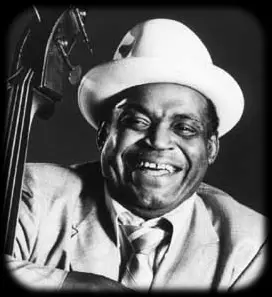Little Red Rooster

Birth of the Chicago Blues
Fewer individuals have played a bigger role in the development and popularity of the blues than Willie Dixon. Born in 1915, Dixon was a man of many talents. He was a songwriter, arranger, producer, lyricist, singer and player of the guitar and upright bass. The best way of summing up his contribution to the blues is to understand how he helped the Mississippi Delta blues transition into the Chicago blues. Simply put, when Dixon left his home in Vicksburg, Mississippi for Chicago, he brought the blues with him.
Anyone hoping to be schooled in the Chicago Blues style would find no better a lesson than the first recorded version of Dixon’s classic by Howlin’ Wolf. On “Red Rooster” – as it was first known; subsequent renditions would change the title to “Little Red Rooster” – the legendary Howlin’ Wolf (also a Mississippi transplant) sings in a subtler, more understated style than he previous generations of Mississippi bluesmen. Compared to Delta classics of the past, “Red Rooster” is slicker, cooler, more urban, more electric. It signaled a coming change in the blues. And the walls were just beginning to crumble.
Little Red Rooster may be the great Willie Dixon’s most memorable contribution to the blues.
The Rooster Gets Cooked
By the 1960s, the majority of Black American music fans were very much under the sway of a genre that had come to be called soul. Derived from gospel and the urbanized sound of pop, soul music and its hip, uptempo feel, seemed a willful departure from the rural, old world style of the blues. But when Sam Cooke – soul music’s biggest star – recorded “Little Red Rooster” in 1963, it opened the door for new possibilities. It suggested that the world of the blues and soul weren’t that far removed after all.
Not surprisingly, Cooke’s rendition is smoother, faster and more guided by the singer’s seductive charm. But significantly, Cooke would Change more than the song’s tone. By adding a verse he takes a simple song about a lost rooster and turns the barnyard fowl into a metaphor for sexual dominance.
I tell you that he keeps all the hens, fighting among themselves
Keeps all the hens, fighting among themselves
He don't want no hen in the barnyard, layin' eggs for nobody else.
Sam Cooke’s rendition scored a hit on both the pop and R&B charts. But the journey of “Rooster” was far from over.
Recommended Album
Great vocals are not unusual in the blues, but on the debut album of Bruce Mississippi Johnson, the vocals truly stand out. Johnson has the ability to soar to the sky with his uniquely resonant baritone. But instead of impressing us with flamboyant vocal gymnastics, he prefers a simplicity that blends elegantly with the blues.
Standout tracks include the Neighbor Next Door and No Good. Johnson’s work here is remarkably consistent, but versatile enough to provide a varied menu. This is a singer to watch.
The Deal Baby
As an Amazon Associate I earn from qualifying purchases.
The Rooster Gets Stoned
Having gotten their start as a blues cover band on the London scene, it made perfect sense for the Rolling Stones to cover “Little Red Rooster.” Their version is surprisingly faithful to the original’s tone and content. It’s not clear where these Londoners picked up their bluesy swagger, but somehow they learned enough to do the song justice.
From Mississippi to Chicago to Los Angeles and London, “Little Red Rooster” is a well-travelled bird.
Little Red Legacy
Although not as frequently covered as many blues classics, “Rooster” has established and maintained a legendary status. Jose Feliciano, The Doors and The Grateful Dead have all done renditions of the song, but its true legacy in its influence of other songs. If you listen closely, you can hear a little “Rooster” in quite a few Chicago Blues songs.
